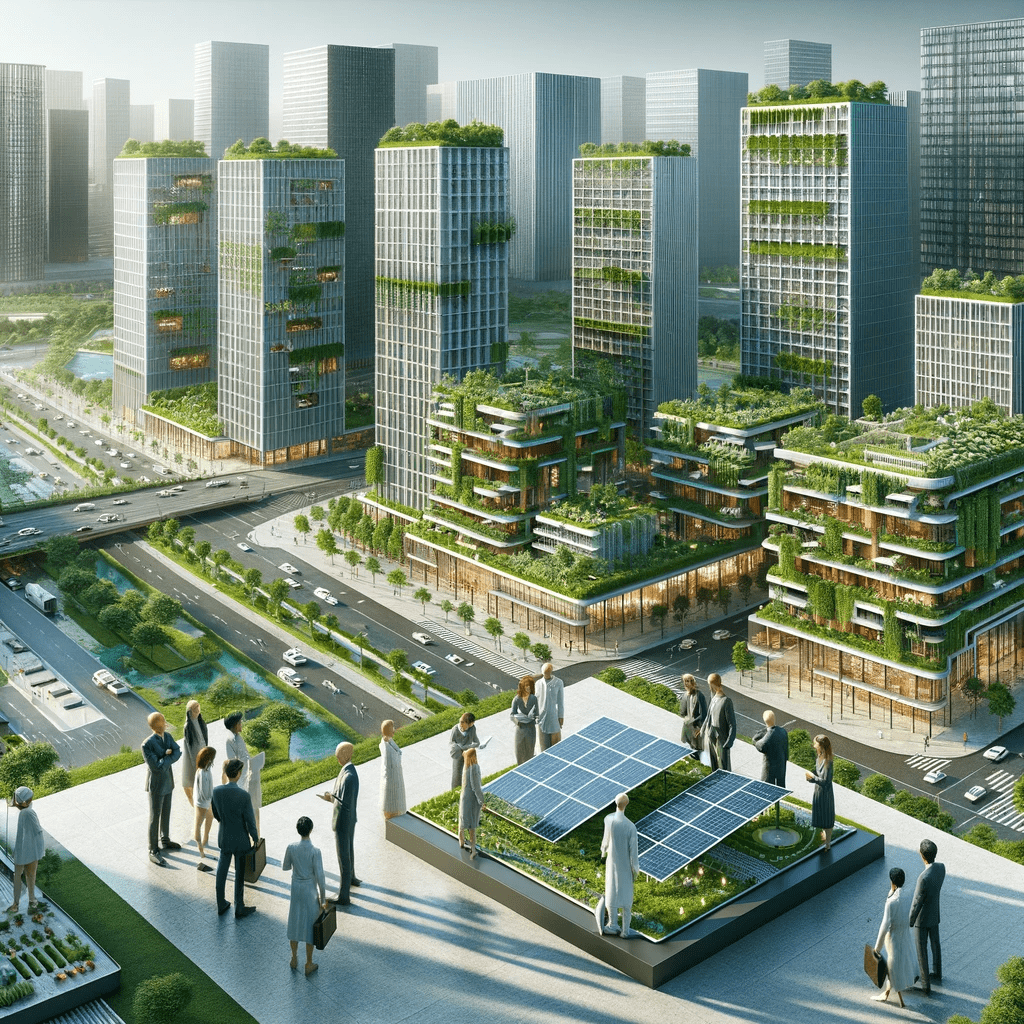Trends that will reshape the real estate market in 2024
Table of Contents
As we step into 2024, the real estate landscape is undergoing a transformative shift, driven by cutting-edge technologies and evolving consumer expectations. From the integration of AI and machine learning revolutionising property management to the rise of immersive virtual experiences, these five key trends are not just reshaping the way we interact with real estate—they’re redefining it.
Sustainability takes a front seat, adapting to the new normal in work models, and leveraging data-driven insights become more crucial than ever. I’m thrilled to share insights into the five trends that are set to reshape the real estate market in 2024. This dynamic industry, always on the cusp of innovation, is embracing technology and new practices to meet the evolving needs of buyers, sellers, and property managers.
Download Now: Real Estate Content Marketing Guide [Free Access]
Join us as we explore these exciting trends that are set to revolutionise the real estate market in 2024, offering a glimpse into a future where innovation meets practicality.
Data-Driven Property Management Takes Center Stage
In 2024, data isn’t just king; it’s the emperor of real estate. The industry is leveraging the power of data analytics to revolutionise how properties are managed. Imagine real-time insights that optimise everything from rental prices to maintenance schedules. Property managers now have dashboards pulsing with live data, offering a 360-degree view of property performance, tenant behaviours, and financial health.
This trend isn’t just about collecting data; it’s about interpreting it to make smarter decisions. Advanced analytics tools predict trends, spot potential issues before they escalate, and even suggest optimal pricing strategies. It’s like having a crystal ball that actually works, powered by algorithms and machine learning.
The Rise of AI and Machine Learning
Artificial Intelligence (AI) and Machine Learning (ML) are not just buzzwords in the real estate sector. They’re game-changers. In 2024, AI is everywhere, from virtual assistants that handle inquiries and automate mundane tasks to machine learning algorithms predicting maintenance needs before a lightbulb flickers out.
AI is transforming customer service in real estate. Chatbots that can answer queries at all hours, virtual assistants scheduling viewings, and AI-driven recommendation systems for buyers and renters are no longer futuristic—they’re here. These technologies not only enhance efficiency but also create a more personalised experience for clients.
Immersive Technology: Virtual and Augmented Reality
Welcome to the era of immersive real estate experiences. Virtual Reality (VR) and Augmented Reality (AR) have taken property viewing to another dimension. Gone are the days of grainy photos and flat floor plans. In 2024, clients can take virtual tours of properties from their couches, walking through digitally rendered spaces that feel as real as the physical ones.
But it’s not just about wow-factor. VR and AR are practical tools. They help buyers and renters visualise spaces, make informed decisions, and even see potential modifications. For property developers and marketers, these technologies are invaluable for showcasing properties under construction or in the planning stages.
Sustainability and Green Buildings
Sustainability is no longer a nice-to-have; it’s a must-have in the real estate world. In 2024, green buildings are not just about environmental responsibility—they’re about economic sense and social relevance. Energy-efficient designs, smart home technologies that minimise resource use, and buildings that contribute positively to their environments are in high demand.
This trend extends beyond the buildings themselves. Sustainable practices are being integrated into every aspect of real estate, from construction materials to waste management. Properties that embrace these practices enjoy not only reduced operational costs but also a boost in market value and tenant satisfaction.
Adapting to New Work Models

The post-pandemic world has redefined the concept of workspaces. Hybrid work models have become the norm, and the real estate market is adapting swiftly. In 2024, we’re seeing a shift in office space design and utilisation. Flexible workspaces, collaborative environments, and tech-enabled offices that support remote and in-office work are trending.
This trend isn’t just about redesigning spaces; it’s about rethinking the role of office spaces in people’s lives. Property developers and managers are innovating to create spaces that are not just places to work but destinations that enhance well-being, foster community, and support a balance between professional and personal life.
Conclusion
As we look ahead to 2024, these trends reflect a broader shift in the real estate industry: a move towards more efficient, personalised, and sustainable practices. It’s a thrilling time for the industry, with technology and innovation leading the charge in shaping the future of how we live, work, and interact with our spaces.
Whether you’re a buyer, seller, investor, or property manager, staying abreast of these trends is crucial. They’re not just shaping the present; they’re paving the way for the future of real estate. And as we embrace these changes, we open the doors to more dynamic, responsive, and responsible real estate practices, setting the stage for a future where our buildings and spaces reflect the best of technology and human-centric design.







